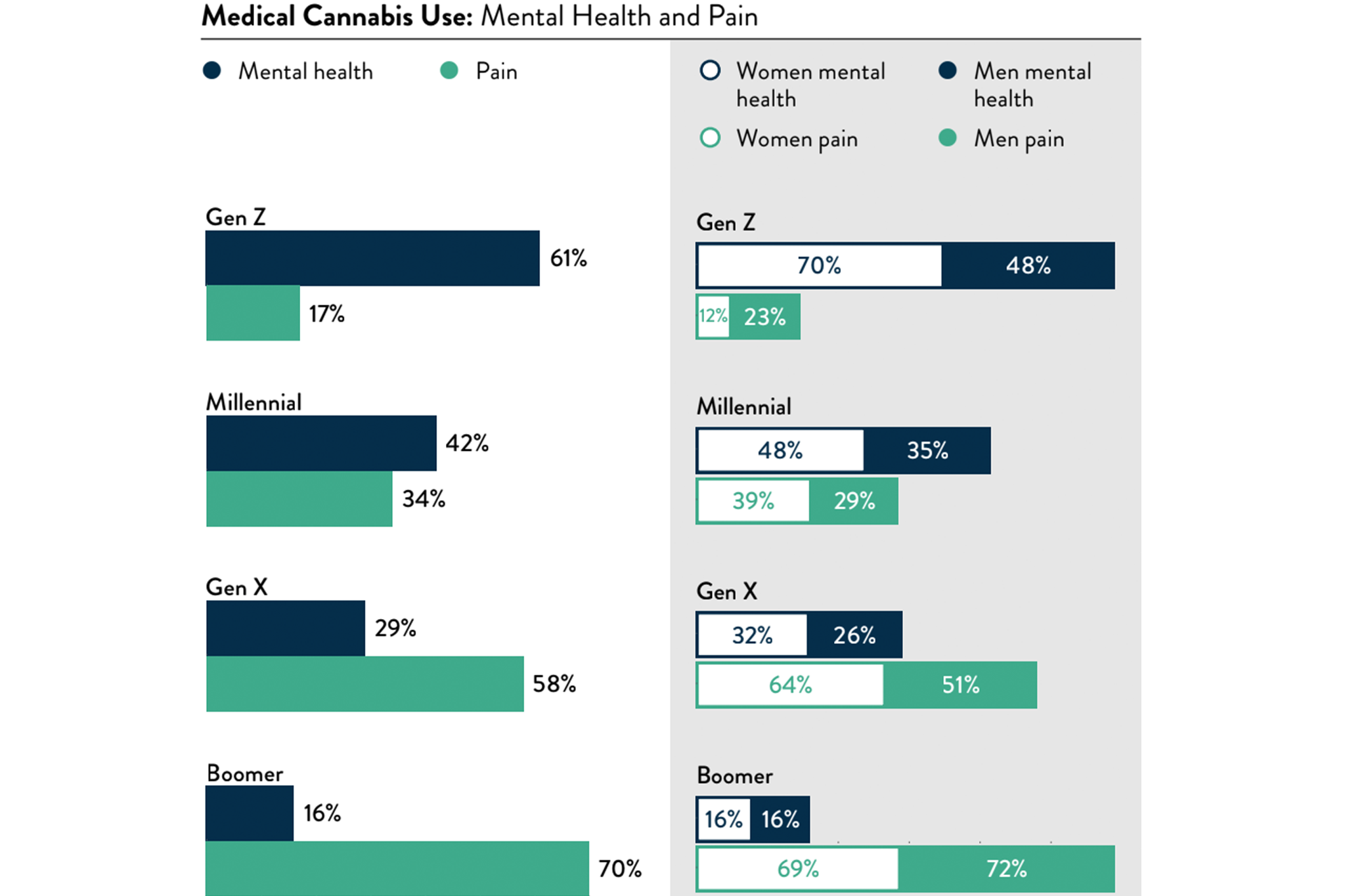Aging baby boomers becoming new face of cannabis
This article first appeared in the Worcester Telegram & Gazette.
By Susan Spencer
Telegram & Gazette Staff
Seventy-two-year-old
Nancy Young shakes almost incessantly, a cruel symptom of the Parkinson’s
disease she’s borne for decades. The Otego, New York, resident, who lives much
of the time in Sutton with her daughter, Michelle Edelstein, Sutton Senior
Center director, has taken prescribed opioids OxyContin and Percocet for nearly
30 years. She said it “just barely covers the pain” of her condition.
Around Christmastime last
year, Ms. Young decided, on the recommendation of people she met in the
supermarket and eventually, her doctor, to try marijuana to ease her symptoms.
She didn’t roll a joint
or buy a bong. Instead, she went with her daughter to a Canna Care Docs clinic
in Worcester to receive a medical marijuana certification, registered with the
state and purchased some edible marijuana products at the Curaleaf dispensary
in Oxford.
“I was looking for a way
to walk and keep my feet under me, and to stop this infernal shaking,” Ms.
Young said in an interview at the Sutton Senior Center.
It took a bit of
experimenting to find the right way to consume cannabis. First she tried a
cannabis-infused chocolate bar.
“I’m a chocaholic and I
took the whole thing,” she said. “My head was going like nobody’s business.”
Ms. Young learned the
hard way about “start low, go slow” with marijuana edibles. And she found a
different medium she much prefers: a tincture she drops under her tongue when
the tremors get bad, especially in the evening.
“It makes me relax, which
in turn slows the shaking down and I can grab some sleep,” she said.
“I’m grateful to see her
not take those opioids so much,” Ms. Edelstein said. Noting her mother’s
reduced pain and relief from other pharmaceutical side effects, she said, “I have
to say, I’m kind of an advocate for it.”
Ms. Young is one of the
fastest-growing group of marijuana consumers: older adults.
A recently released study
out of New York University, supported by the National Institute on Drug Abuse,
looked at data from the National Survey on Drug Use and Health, an annual
survey of 70,000 Americans of all ages.
Researchers found that in
the 2015-2016 survey, 9% of adults ages 50 to 64, and 2.9% of those 65 or
older, reported using marijuana in the past year.
That prevalence is a 27%
increase for 50- to 64-year-olds, and a 107% increase – essentially doubling –
for those 65 or older since the 2012-2013 survey. Compared with the 2006-2007
survey, the increases are 100% for 50- to 64-year-olds and 625% for 65 or
older.
A Massachusetts survey by
the state Department of Public Health, conducted in late 2017, before recreational
marijuana stores were open, found that 18.7% of people in their 50s, or nearly
one in five residents in that age group; 14.1% of people in their 60s; and 3.4%
of residents age 70 or older reported using marijuana in the past month.
“Grandma is certainly the
new face of cannabis,” said Stephanie Gluchacki, president of clinical
operations for Canna Care Docs, which has 11 medical offices in Massachusetts.
She said about 24%,
nearly one out of four, of their patients are ages 60 to 74, and another 10%
are over 75.
“It’s definitely not the
demographic one would anticipate to see,” she said.
Ann Brum, spokeswoman for
MedWell Health & Wellness, another clinical group that certifies patients
with qualifying conditions for medical marijuana eligibility, said baby
boomers, roughly ages 55 to 73, and older patients are a growing and important
part of the marijuana market.
She highlighted a market
trend report by BDS Analytics, which found that two out of three baby-boomer
consumers use cannabis for medical or health reasons, often to replace
prescription medication.
“They’ve just had it with
polypharma, med after med,” Ms. Brum said.
Another recent survey by
researchers at Worcester-based Cannabis Community Care and Research Network and
the University of Massachusetts at Dartmouth reported that medical marijuana
consumers ages 50 or older primarily use cannabis to treat chronic pain, anxiety,
depression, insomnia and arthritis.
Approximately one in five
survey respondents reported that cannabis helped them reduce use of opioids.
Nearly a third reduced their use of other medications.
Medical marijuana
clinicians and dispensaries are targeting their outreach to tap into this
growing demographic.
MedWell, which has
brick-and-mortar offices elsewhere in the state, offers local pop-up medical
cannabis evaluation and certification clinics, such as one scheduled for Aug.
11 at the Hilton Garden Inn in Worcester.
MedWell clinicians also
go into assisted living and retirement communities, or will conduct home visits
to evaluate and educate patients on medical cannabis, according to Ms. Brum.
Canna Care Docs offers
lunch and learn sessions at senior centers. A nurse practitioner discusses
legal and health-related aspects of cannabis, but evaluations and
certifications aren’t conducted as part of the seminars.
Medical marijuana
dispensaries are invited to participate in these educational sessions as well.
“These Q&As allow for
open conversation without judgment,” Ms. Gluchacki said.
There are several common
themes among seniors, according to Ms. Gluchacki. They’re seeking relief from
chronic pain, especially arthritis; they’re looking to cannabis as a sleep aid;
and they’re interested in cannabis’ role in curbing Alzheimer’s symptoms, for
which there is some, but not rigorously tested, association, according to the
Alzheimer’s Association.
Seniors are also
cost-conscious and look to cannabis as a cheaper alternative to prescription
medication, she said.
Several in the marijuana
industry said seniors were less likely to rely on the internet for information,
preferring to have printed material to share with family and friends, and to
rely on word-of-mouth.
Ms. Edelstein arranged
for a lunch and learn with Canna Care Docs and Curaleaf in May.
Worried at first about
what the town would think, she said, “I ran this program with a nervous
stomach. And it was amazing.”
Several seniors pursued
medical marijuana after that presentation, but most were still reluctant to
talk publicly about their use.
“There’s a stigma that
goes with it, and that’s a shame,” Ms. Edelstein said. “If it can help
somebody, I say, shout it from the rooftops.”
Northbridge Senior Center
has scheduled a cannabis information session with Canna Care Docs for Sept. 4.
Read the full article on Worcester Telegram & Gazette.

 (866) 846-2420
(866) 846-2420



